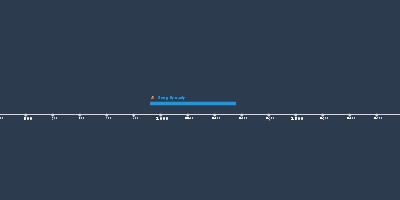Historical Period 2 (1 gen 1450 anni – 1 gen 1750 anni)
Descrizione:
1. Ottoman Conquest of Constantinople (1453): Conquered by Emperor Mehmed II, causing the fall of the Byzantine Empire. Eliminated a powerful Christian stronghold, allowing for the unhindered western expansion of Islam.2. Beginning of Columbian Exchange (1492): The New World traded corn, potatoes, tobacco, and rubber for Old World livestock, flu, smallpox, and coffee. Resulted in the massive dying off of Native Americans and the enrichment of Afro-Eurasian diets.
3. Safavid Empire (1501-1722): Largest Sh'ia empire of that time period, engaged in power struggles with the Sunni Ottoman Empire.
4. Protestant Reformation Begins (1517): Begins with Martin Luther's 95 Theses. Challenged the Catholic Church and papal authority, and splintered the Christian Church. John Calvin also played a substantial role in the Reformation.
5. Mughal Empire (1526-1748): Important rulers included Akbar, who was religiously tolerant, removed the jizyah tax (tax to be non-Islamic) , fostered the arts, and Aurangzeb, who persecuted Hindus and Sikhs, leading to the decline of the empire. Taj Mahal was constructed.
6. First enslaved people come to the Americas (1534): Led to slave labor becoming integral to economies in the Americas, and the Triangle Trade, where slaves were sent from Africa to the Americas, rum, sugar, and more were sent to Europe (Britain), and British goods were sent to Africa in exchange for more slaves in the Americas.
7. Scientific Revolution (1550-1700): Developments in physics, math, biology, astronomy, and chemistry in Europe that revolutionized how society saw nature. Important figures included Isaac Newton, Copernicus, Galileo Galilei, Kepler, and Descartes.
8. Russian Empire Begins (1552): Russia begins expanding into surrounding Eurasian areas, including Siberia. Beginning of Russia's autocratic leaders in order to control the vast amount of land that the empire encompassed. 9. Qing/Manchu Empire (1688-1912): Manchurian invaders took control of China, but assimilated to Chinese systems (dynasty). New elite blended their culture and systems with the old ones of Han rulers. Biggest Chinese empire, which enforced one style of wearing hair and clothes.
10. The Enlightenment (1715-1789): Emphasized reason, liberty, and equality. Notable figures included John Locke ("life, liberty, and property"), Rousseau (direct democracy), Voltaire, Montesquieu (3 branches of government), Hobbes (humans inherently evil and need strong leader).
Aggiunto al nastro di tempo:
Data:
1 gen 1450 anni
1 gen 1750 anni
~ 300 years
